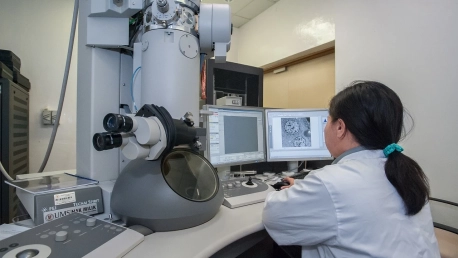Cancer treatments have long been a complex array of procedures with varying degrees of success. However, groundbreaking research from the University of Houston, spearheaded by Navin Varadarajan and his team, has shone a light on a new horizon for cancer therapy. They have identified CD8-fit T cells, a new class of immune cells, which could revolutionize T-cell therapies and herald an era of personalized cancer treatments. This article unpacks the discovery and its profound implications for the future of cancer care.
The Discovery of CD8-fit T Cells
Characteristics and Behavioral Analysis
The newly discovered CD8-fit T cells are revolutionizing our understanding of the immune response in the fight against cancer. These cells are not merely present; they are dynamic warriors with exceptional motility and a striking ability to eliminate cancer cells one after another. Such prowess was observed in individuals who showed favorable outcomes following T-cell therapy, suggesting a correlation between CD8-fit T cell presence and therapeutic success. The notion that one’s body possesses these cellular champions, each capable of taking down multiple cancerous adversaries, is not only fascinating but also a substantial gateway to advancements in therapy efficacy.
Innovative TIMING Method and AI’s Role
To gain insight into the intricate workings of CD8-fit T cells, researchers employed the cutting-edge TIMING method, which harnesses the power of time-lapse imaging microscopy in nanowell grids. Combined with visual AI, this technique meticulously records and scrutinizes the behavior and lethal capacity of individual T cells. Such granular analysis using artificial intelligence provides a level of observation that is pivotal in understanding why certain immune responses succeed over others. By unlocking the door to the microcosmic clash between T cells and cancer, artificial intelligence serves as both a scalpel and a magnifying glass, dissecting and examining the core of immune-based cancer treatments.
Collaboration and Molecular Insights
A Multidisciplinary Approach
The research accomplished by Varadarajan’s team at the University of Houston exemplifies the extraordinary results achievable through a collaborative effort. Pooling knowledge and expertise from a spectrum of prestigious institutions and professionals, including those from the University of Texas MD Anderson Cancer Center and Baylor College of Medicine, has proven instrumental. In addition, the significant input from graduate and postdoctoral researchers has solidified the interdisciplinary nature of this study, showing that the collective pursuit of scientific knowledge can scale the heights of understanding in cancer immunotherapy.
Defining the Genetic Signature
Taking the research a step further, the team embarked on an intricate journey to map the genetic signature of CD8-fit T cells. By utilizing single-cell RNA sequencing, researchers were able to decode the molecular language of these cells, unveiling the reasons behind their proficient tumor-fighting capabilities. Identifying these markers is not just a scientific victory; it is the bedrock upon which personalized immunotherapy can be built, providing a roadmap for predicting which patients will benefit most from T-cell therapies. Ultimately, this genetic profiling could transform the landscape of cancer treatment, offering customized care strategies for those battling the disease.
Implications and Future Prospects
Transforming T-cell Immunotherapy
The prevalence of CD8-fit T cells has emerged as a determining factor in the success and longevity of T-cell therapy responses, hinting at the significant role they may play across various cancer types. With the potential to manage an array of tumors beyond those investigated, CD8-fit T cells are not just another discovery; they are potentially the cornerstone of a new era in cancer treatment. The ability to harness their properties may lead to therapeutics that shift from a one-size-fits-all approach to a tailored, enduring combat strategy against this formidable disease.
From Research to Application
Navigating the complexities of cancer treatment approaches a new chapter thanks to the pioneering research led by Navin Varadarajan and his colleagues at the University of Houston. Their studies have identified an innovative class of immune cells known as CD8-fit T cells. This crucial finding may transform how T-cell therapies are utilized, paving the way for treatments that are tailored to the individual needs of cancer patients. As we delve into this significant breakthrough, the implications it holds for the future of oncology are immense, suggesting a shift towards more effective and personalized cancer care strategies. The work of Varadarajan’s team is not just another step in the fight against cancer; it’s a giant leap towards the potential mastery of the disease, promising a future where cancer therapies are not just standardized, but custom-fitted to each patient’s unique battle with the illness.









